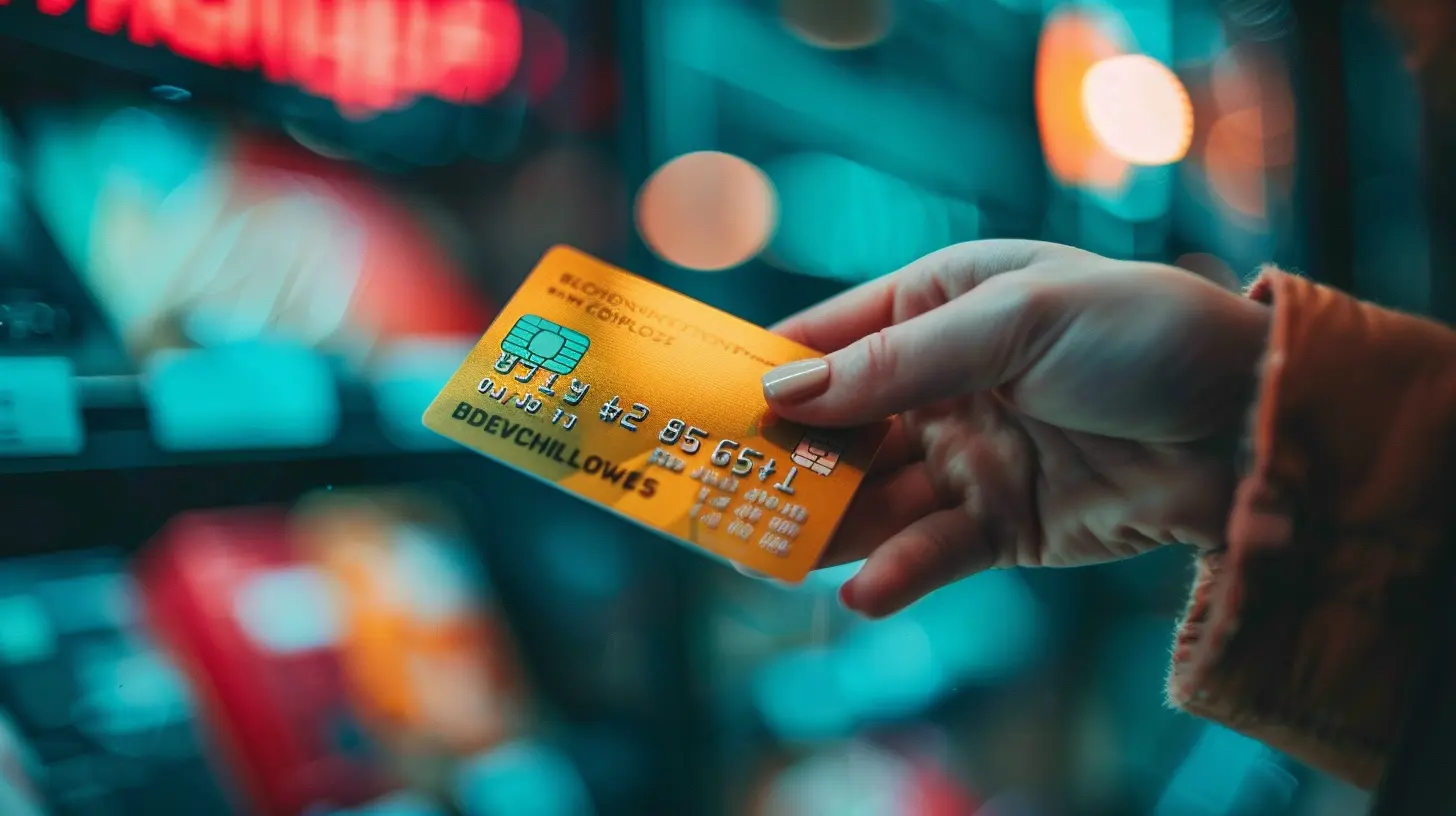How Blockchain is Reinventing Loyalty Programs and Rewards
2 June 2025
Loyalty programs have been around for decades, with companies using them to keep customers engaged and coming back for more. But let’s be honest—traditional loyalty programs often fall short. Ever struggled with expired points, confusing redemption processes, or rewards that don't seem worth the hassle? You’re not alone.
Now, enter blockchain—a game-changing technology that’s shaking up industries left and right. But what does it have to do with loyalty programs? A lot, actually. Blockchain is revolutionizing the way brands reward customers, making these programs more transparent, secure, and flexible.
So, let’s break it down. How exactly is blockchain transforming loyalty programs? 
The Problem with Traditional Loyalty Programs
Before we dive into the wonders of blockchain, let’s first understand why traditional loyalty programs need an upgrade.1. Complex and Frustrating Systems
Many loyalty programs are difficult to navigate. You earn points from purchases, but then there are endless restrictions on where and how you can use them. Worse, some programs make it nearly impossible to redeem rewards without jumping through hoops.2. Limited Interoperability
Ever wished you could use your airline miles to pay for coffee? Unfortunately, loyalty points are often locked within a single brand or ecosystem. This lack of flexibility makes rewards less valuable.3. Security and Fraud Issues
Loyalty programs might seem harmless, but they’re often prime targets for fraud. Points theft, account hacking, and even reward manipulation are real concerns. Since many loyalty programs operate on centralized databases, they’re vulnerable to cyberattacks.4. Low Customer Engagement
Let’s be honest—unless a program offers significant value, most of us lose interest. A report by Bond Loyalty found that 57% of loyalty memberships go unused. That’s wasted potential for both customers and businesses.Clearly, the traditional approach isn’t cutting it anymore. That’s where blockchain comes in. 
How Blockchain is Changing the Game
Blockchain is more than just Bitcoin and cryptocurrencies. It’s a decentralized, transparent, and secure way of recording transactions. And for loyalty programs, this technology can solve nearly every issue we just discussed.1. True Ownership of Rewards
With blockchain, customers actually own their loyalty points. Instead of points being stored in a company’s centralized system, they exist as digital assets on a blockchain. This means no more worrying about points suddenly expiring or being revoked by companies.2. Seamless Interoperability
Imagine earning reward points from different brands and using them interchangeably. Blockchain enables a universal loyalty ecosystem where points from various programs can be converted, transferred, or combined. This is a game-changer for consumers who want more flexibility.For example, instead of having separate loyalty points for your favorite coffee shop, airline, and clothing store, blockchain might allow you to pool them together and redeem them however you want.
3. Enhanced Security and Transparency
Since blockchain records transactions in a secure and unchangeable way, fraud becomes nearly impossible. No one can manipulate the system to create fake points or steal your rewards.Not to mention, companies can also ensure that every transaction (earning and redeeming points) is recorded transparently. This builds trust between brands and customers. 
Real-World Applications of Blockchain in Loyalty Programs
Several companies are already embracing blockchain technology to revamp their loyalty systems. Let’s take a look at some real-world examples.1. Singapore Airlines: KrisPay
Singapore Airlines launched KrisPay, a blockchain-based digital wallet that lets customers convert air miles into cryptocurrency-like tokens. These tokens can be used at various retail outlets, providing greater spending flexibility.2. American Express & Hyperledger
American Express partnered with Hyperledger to provide merchants with decentralized, customizable loyalty programs. Instead of relying on rigid, pre-defined systems, businesses can create their own blockchain-powered rewards for customers.3. Rakuten’s Blockchain-Powered Rewards
Rakuten, the Japanese e-commerce giant, transitioned its loyalty program to blockchain technology, making reward points easier to manage and utilize across different services.These are just a few examples, but they highlight a key trend—brands are moving towards blockchain-based loyalty to improve customer experiences. 
The Advantages of Blockchain-Based Loyalty Programs
With blockchain at the helm, loyalty programs become smarter, more engaging, and much more rewarding. Here's how:1. Instant Transactions
No more waiting days (or weeks) to get your reward points credited. With blockchain, transactions happen instantly, giving customers a seamless experience.2. Better Customer Engagement
By making rewards more valuable and easy to use, brands can encourage higher engagement levels. A flexible, secure system ensures customers stay interested rather than abandoning their memberships.3. Cost Efficiency for Businesses
Maintaining traditional loyalty programs can be expensive due to admin costs and fraud-related losses. Blockchain reduces overhead costs because it streamlines processes and eliminates intermediaries.4. Personalized Loyalty Programs
Because blockchain allows for smarter data management, companies can offer hyper-personalized rewards tailored to a customer's buying habits and preferences.Challenges and Roadblocks
Of course, blockchain-based loyalty programs aren’t without their challenges.1. Consumer Adoption
Not everyone is familiar with blockchain technology. Some consumers might hesitate to use a blockchain-based system simply because they don’t understand how it works.2. Regulatory Uncertainty
Blockchain is still a relatively new technology, and regulations differ across countries. This can create legal challenges for brands that want to implement blockchain-powered rewards.3. Integration with Existing Systems
Many businesses already have traditional loyalty programs in place. Transitioning to a blockchain-based system requires investment in time and resources, which can be a hurdle.Despite these challenges, the benefits far outweigh the drawbacks. The shift toward blockchain-based loyalty programs is already happening, and it’s only a matter of time before it becomes the industry standard.
The Future of Blockchain in Loyalty Programs
So, what does the future hold? Well, as blockchain technology continues to evolve, we can expect even more seamless, user-friendly, and valuable loyalty programs.Here’s what we can anticipate:
- Universal Loyalty Wallets – A single wallet for all your loyalty points across different brands.
- NFT-Based Rewards – Exclusive, limited-edition digital rewards that can be traded or resold.
- AI + Blockchain Integration – Smart rewards that adapt based on customer behavior.
Blockchain isn't just improving loyalty programs—it’s reinventing them from the ground up.
Final Thoughts
Loyalty programs are meant to reward customers, not frustrate them. Yet, traditional systems have been plagued with inefficiencies, lack of flexibility, and security concerns. Blockchain offers a much-needed solution by making loyalty programs more transparent, secure, and interoperable.For businesses, adopting blockchain could mean better customer engagement and lower costs. For consumers, it means finally having rewards that are genuinely valuable and easy to use.
The future of loyalty programs is decentralized, and it's happening now. Are you ready for the change?
all images in this post were generated using AI tools
Category:
Blockchain TechnologyAuthor:

Michael Robinson
Discussion
rate this article
3 comments
Angie McNair
Empowering customers through transparency.
June 5, 2025 at 4:36 AM

Michael Robinson
Absolutely! Transparency built on blockchain enhances trust and engagement, making loyalty programs more effective and rewarding for customers.
Jessica Underwood
Exciting times ahead! Blockchain is not just a buzzword; it's transforming loyalty programs into transparent, secure, and user-friendly systems. Embrace this revolution and unlock new possibilities for rewards and customer engagement!
June 3, 2025 at 10:22 AM

Michael Robinson
Thank you for your insights! Indeed, blockchain is revolutionizing loyalty programs by enhancing transparency and engagement. Exciting times are ahead!
Yasmine McLean
While blockchain enhances transparency and security in loyalty programs, it also raises concerns about user privacy and the complexity of implementation. The real challenge will be balancing innovation with user experience.
June 2, 2025 at 3:32 AM

Michael Robinson
You make an excellent point! Balancing transparency and user privacy is crucial for the successful implementation of blockchain in loyalty programs. It's essential to find solutions that enhance user experience while maintaining security and innovation.



